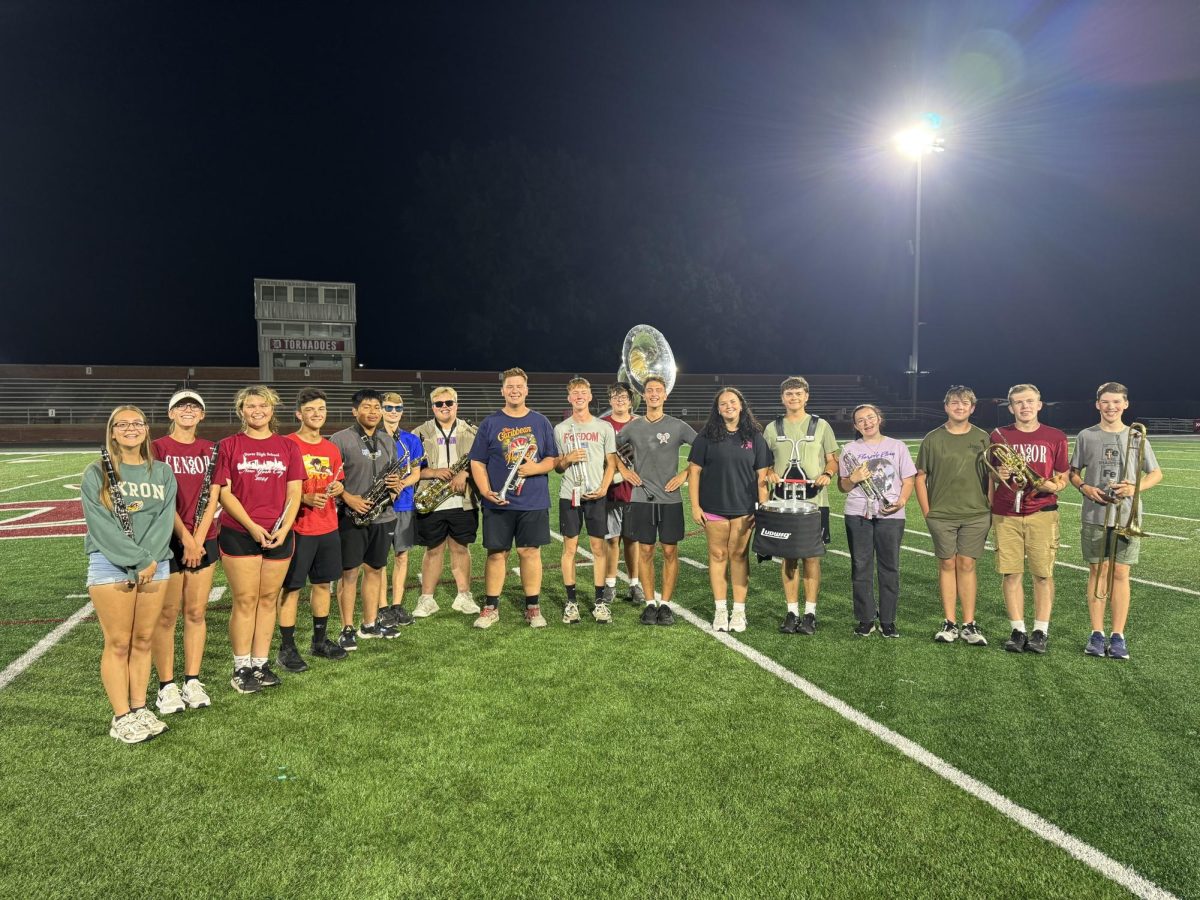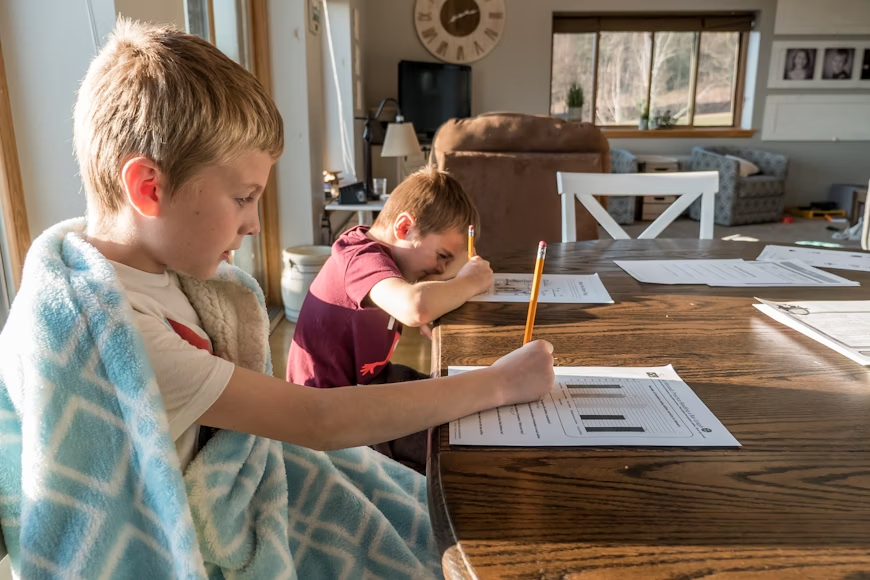To some, being a leader sounds frightening. In a group as large as Dover high school’s band, having student leaders is necessary to help the whole grow and learn. What’s it like to lead as a student who is still learning also? I’ve asked the section leaders to complete a survey about their experience being a mentor for other students.
Applying is the first step towards being a section leader. The process of applying includes filling out a form about what you believe makes a good leader, and a short interview with Mr. Carrick and Mr. Redd. Many of the responders said applying can be stressful, but when it was said and done, they realized there wasn’t really anything to worry about. One of the clarinet section leaders, Kacy Ireland, said this about her application process, “It was stressful but in a good way. It made me really analyze who I was as a person and work on myself to make myself a better person.” This is Kacy’s first year being a section leader. Others who have been a section leader in previous years were understandably less nervous about their interviews. Matthew Boehm, who was the mellophone section leader his junior year and now his senior year too, responded, “It was essentially like a job interview. He asked me, because I was a section leader last year as well, how I thought I did as one last year and how I want to approach my teaching and leadership this season.” Other experienced section leaders like Matthew seemed to have a less anxious attitude towards leadership.
If you’re in band, or frankly, any class with different levels of student seniority, it’s easy to see how older and more adept students have more trust from teachers. When asked if being a section leader changes interactions with peers and teachers, almost all the respondents said yes. Kyla Davis, the younger of the two clarinet section leaders, explained that taking on this role has made her more conscientious in her regards towards others. She wrote, “Being section leader definitely changed how I interact with people and especially my attitude. I’ve definitely gotten more respectful and because I have people looking up to me I’ve been more careful with what I say and how I react to things.” Drumline’s snare section leader, Dylan Reed, added, “I think it has made my section have a good example on what to look up to.”
Being a good role model for a group of fellow musicians can be stressful. About 70% said they find it at least a bit stress inducing. In the piccolo section, Jude Van Dyne replied, “It’s a serious challenge because a lot of my section is a bit inexperienced and requires a lot of instruction, but it is enjoyable nonetheless.” he later added, “Feeling as though people don’t listen to me or care about improving is honestly very discouraging.” A few people responded similarly, but some had a response more like Maddy, who is also a piccolo section leader. While Maddy said being a section leader sometimes feels like babysitting, when asked if she had any struggles with leading, she just said, “Nahh we chilling.”
Despite the struggles and pressure, everyone who answered said they find enjoyment in the experience. 80% of non-senior section leaders said they’d apply to be section leader again; the remaining 20% said they might. Matt Shreiner from the trumpet section said his favorite part of leading is, “Being able to connect with the new matchers and hopefully leaving an impact on the band.” Similarly, Will Pilcher from the trombone section said, “Helping others improve as marchers and musicians, for the better of the whole band.” All of the respondents had answers akin to these two.
Teaching others can bring opportunities to learn yourself, too. Our current drum major, Bryce Beckley, mentioned, “I have so many opportunities to connect with the people around me. I just need to be the one to reach out to those people.” Connecting with peers is extremely important for section leaders to learn to do. Without a bond with your section, there can be a lack of respect and admiration. Matthew states, “I find that I have learned how leadership works and how it has its ups and downs. Don’t get me wrong, it’s not the hardest thing I’ve ever done but it’s not easy either. I’m tasked with, not only, teaching playing the instrument but also with teaching how to march and then how to do both at the same time. So it’s a stressful but rewarding job at the end of the day. Seeing the people I’ve taught for 2 years grow as musicians is an extremely rewarding experience to say the least.”
Overall, all of the section leaders seem to find the experience worth it. Even with setbacks, nerves, and frustrations, the good seems to outweigh the bad. No accounts expressed any hatred or ill will about their role in leadership. In fact, quite the opposite. Getting to connect, helping others grow, and also improving along the way seem to be the important themes in these leader’s lives.








